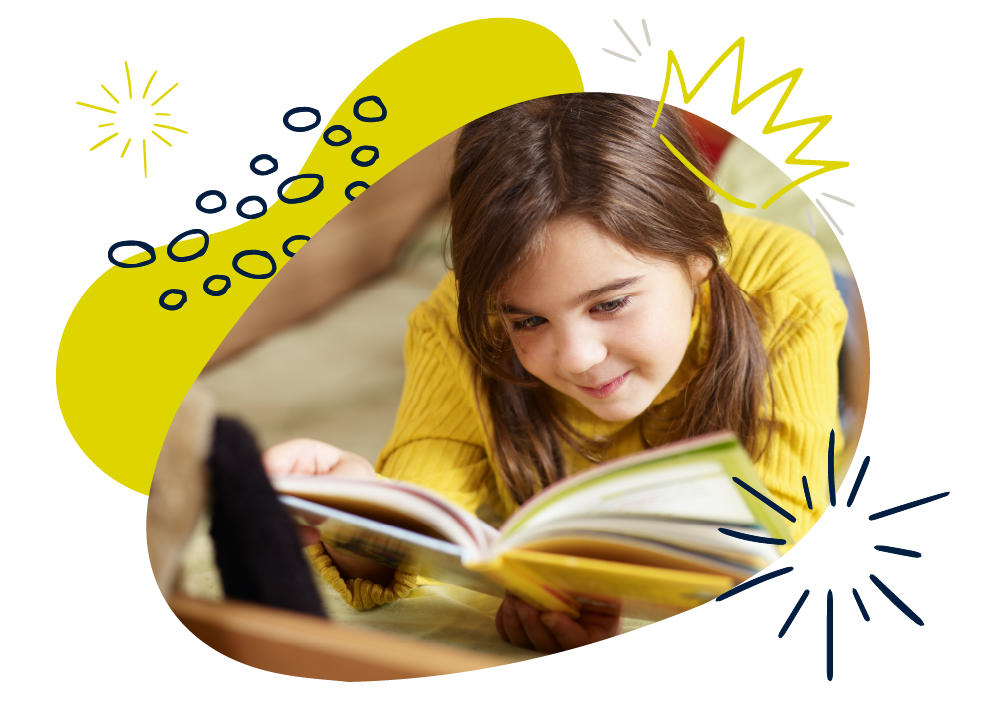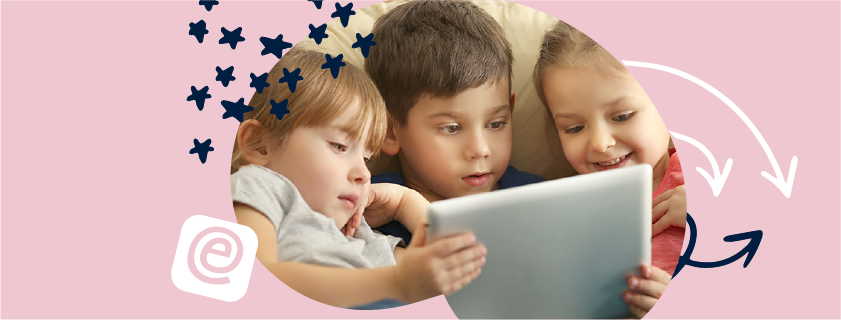Supporting reading in Year 2 (Age 6-7)
If your child is in Year 2 (in England) or Primary 3 (in Scotland), he or she is probably moving from a reader of words and sentences to a reader of books. You are probably good friends with their phonics programme and reading scheme. Over the course of this year, you will probably see your child learning some of the more unusual spelling patterns and an ever-increasing list of both tricky words and common words. Your child is on their way to being a fluent reader with growing comprehension skills.
If you live in England, your child will take their Key Stage 1 SATs. The tests include maths and English sections, as well as two reading papers. To find out about the SATs and how you can help your child prepare, visit our Key Stage 1 SATs page.
How to help at home
There are lots of ways you can help your child with reading in Year 2/Primary 3.
Keep reading every day
When our child is moving through the stages of their reading scheme, it’s tempting to feel that listing to them reading their reading book is not as important as it once was. We might feel that our child can progress on their own. However, it remains just as important. Your child’s reading book will include more complicated spellings, new words and different ideas to talk about. So, keep listening to your child every day. It really will make a difference! It might feel like a chore, but try to make it a fun, cosy time. As you listen to your child read, help them to decode any unfamiliar words if they get stuck and encourage them to keep going. The best advice is to be patient and be impressed!
Your child’s expression might sometimes sound stilted on the first read of a sentence or a page. This is because they are focusing on linking the letters to sound and then joining the sounds into words. To keep your child hooked into the story, read it again with expression – after lots of praise, of course!
Read to your child
Carry on reading to your child every day. Although your child will learn a lot about how language works from speaking and listening, the type of language we use in writing is often different from that in speech. Reading regularly to your child, especially books that they cannot yet read on their own yet, is therefore a great way of improving their vocabulary and their understanding of language.
Choose a wide range of books
Try to read your child a mix of fiction and non-fiction, real stories and magical stories, familiar characters and new experiences. Sometimes you might choose the book, sometimes they might choose the book and sometimes you might read both!
Browse our book recommendations to help you find the right book to share with your child. You could also take a look at our free eBook library for more ideas.
Talk about books, stories, words and pictures
Talking about books you are reading together is great for their comprehension skills. Talk about the characters and what happens in a story, or what specific bit of information was most useful. Ask your child for their opinions too – let them tell you if (and why) they don’t like a book. Part of growing as a reader is learning that it’s okay not to like books sometimes!
Asking your child open questions can help them to think about what they’re reading. Try to ask questions that begin with ‘how’ and ‘why’. See if your child can go back to the text and pictures to tell you how they know the answer. Ask questions you don’t know the answer to, such as ‘Why did she do that?’ ‘What’s going to happen next?’ as well as questions that check that they understand the story.
Don't be afraid to re-read
Many children like to read and re-read favourite books. It can be tempting to think that this is a waste of their time, but this is not the case at all. As well as giving your child the opportunity to encounter the same words and phrases enough times to remember them, re-reading helps children to the think again about the ideas in the book. Maybe they will notice something they missed the first time? Having old favourites that you go back to again and again helps develop a love of reading.
Keep practising phonics
By now, your child will have had lots of practice with reading. This will mean that they will probably not need to sound out and blend the sounds in most words. However, there will still be some unfamiliar words that need to be decoded carefully. It’s still important for your child to try sounding out and blending a word if they get stuck.
Free eBook Library
Find a huge selection of free eBooks to encourage your child to read and support their reading journey in our library. Take a look >

